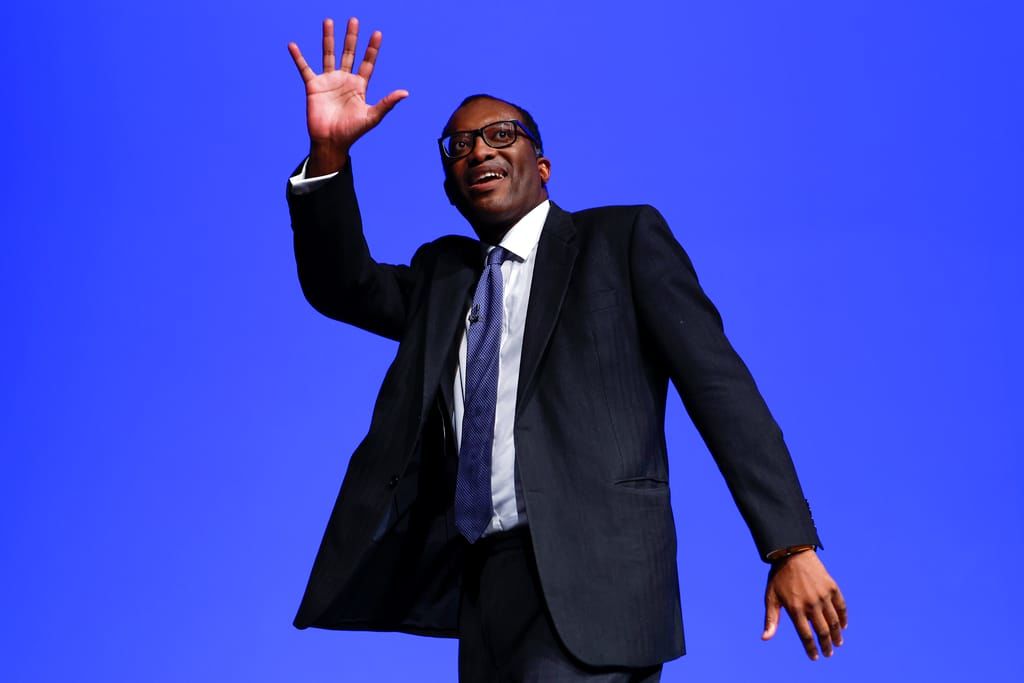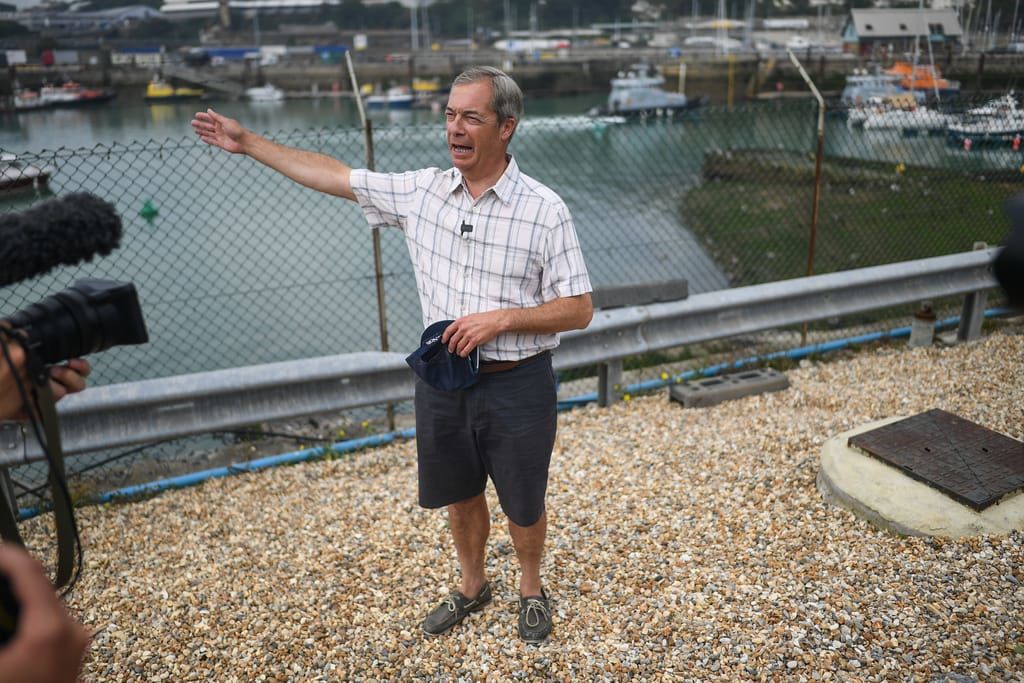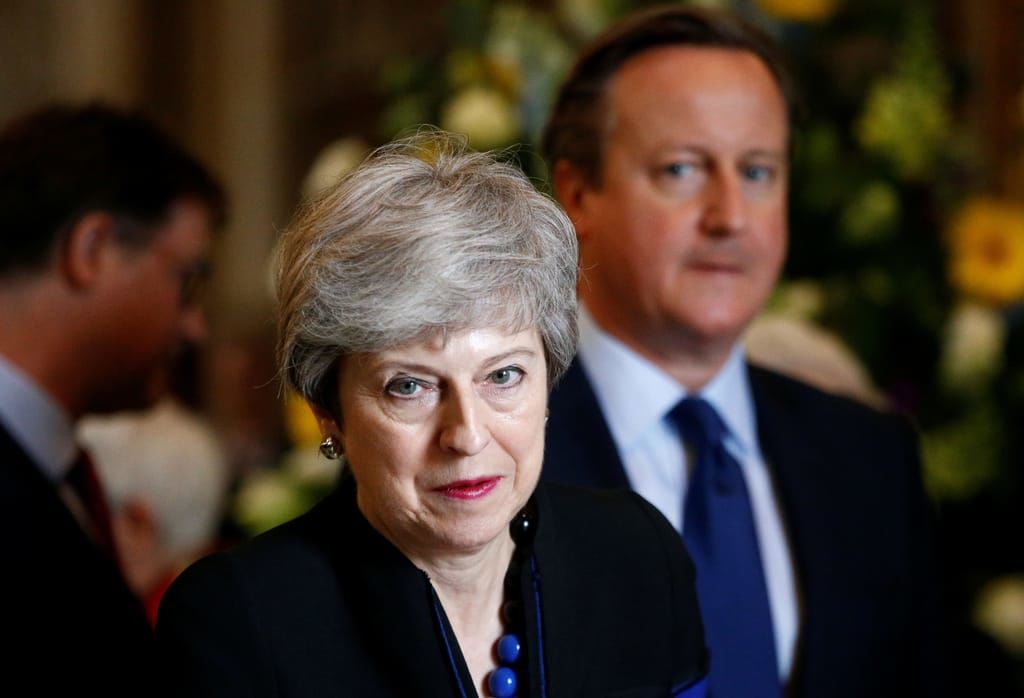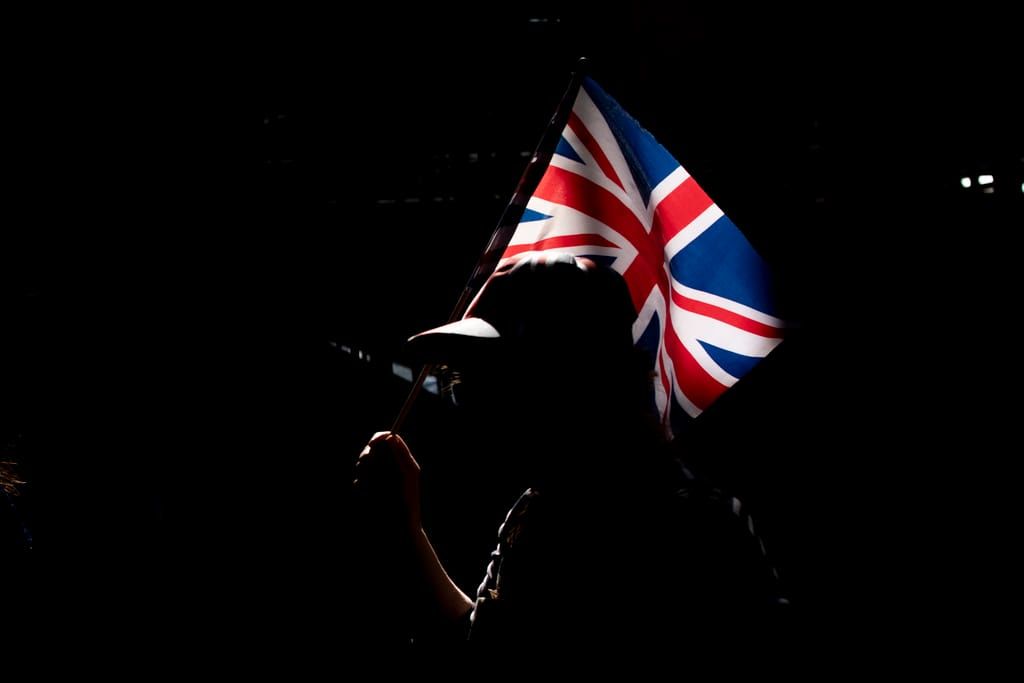
The Brexit cult that blew up Britain
It was a revolution 11 long years in the making.
For a small but vocal band of right-wing libertarians, Liz Truss’ appointment as U.K. prime minister on September 6 seemed the triumphant end point of an epic and improbable march that led them from the fringes of British politics to Whitehall’s grandest corridors of power.
In the course of just over a decade, a group of little-known politicians, fringe think tanks and outspoken media figures had helped drag the Tory Party, and the nation it led, from David Cameron’s vision of so-called compassionate Conservatism — hugging huskies and all — to a Brexit-backing, free-market embracing, low-tax juggernaut.
It took them four Tory prime ministers, four general elections and an era-defining referendum to do it — but with Truss in charge, they were finally living their dream. The country was to be remade in their image.
It lasted 44 chaotic days, and no more.
“They felt their moment had come at last,” said Tim Bale, professor of politics at Queen Mary University London. “This would prove that Brexit hadn’t been a ghastly mistake, but a fantastic opportunity. But of course, as it was always based on fantasy, it was always bound to collide with reality.”
Truss was elected Conservative leader — and so U.K. prime minister — last month on the votes of just 81,000 party members, a group large enough to defeat her more centrist opponent, Rishi Sunak, but still small enough to fit comfortably inside Wembley stadium, home of the England football team.
This band of true-blue believers had been wooed by her heady promises of a low-tax, low-regulation state that would embrace the opportunities provided by Brexit.
But as soon as PM Truss started to put her promises into action — via a ‘mini-budget’ on September 23 which included tens of billions of pounds in unfunded tax cuts alongside a massive energy subsidy scheme — the markets began sliding into turmoil. Within days it was clear Truss had triggered an economic crisis — and one that sent the Conservative poll ratings tumbling along with the value of the pound.
Her MPs, facing electoral oblivion, were terrified.
In the weeks that followed, Truss was forced to sack her Chancellor Kwasi Kwarteng and U-turn on most of their economic program in a desperate bid to stabilize the markets. This week her home secretary, Suella Braverman, followed Kwarteng out the door. Her MPs became mutinous, some publicly demanding her head. Support rapidly drained away.
On Thursday morning, after a disastrous attempt to force her MPs to vote against their own manifesto pledge not to re-start fracking projects around the U.K., she accepted the game was up.
 Truss was forced to sack her Chancellor Kwasi Kwarteng and U-turn on
most of their economic program in a desperate bid to stabilize the
markets
Truss was forced to sack her Chancellor Kwasi Kwarteng and U-turn on
most of their economic program in a desperate bid to stabilize the
markets
Truss’ disastrous six weeks in power were an abject humiliation for the prime minister herself, of course — but also for the libertarian right of the Conservative movement that had fought its corner for years.
Winners and losers
“I’m pretty distraught about it,” said Mark Littlewood, director general of the Institute for Economic Affairs (IEA), one of the right-wing Westminster think tanks that inspired the Truss agenda. (He, like most of the interviewees for this article, was speaking after the abandonment of Truss’ economic program earlier this week, but before she finally resigned Thursday afternoon.)
“It did actually appear as if we had a new government that, in very broad terms, shared the IEA analysis of the problems with our economy, and it not being market-oriented enough.”
But Truss botched the “political execution” rather than economic thinking, Littlewood insisted, lamenting that “if the execution goes badly wrong, it has a rebound effect on the ideas.”
Indeed, Conservative libertarians explain the Truss debacle in various ways: She was not clear enough about what she was doing and the reasons for it; she made the announcements in the wrong sequence; she refused to match her tax cuts with spending restraint; and she failed to produce independent proof that her plans would work. There is certainly little sign of remorse.
“The position we’re in now is that these reforms basically have not been tried,” Littlewood insisted. “Her attempts to implement change were too hurried; too rushed; not thought through; naïve in some regard.”
Former UKIP leader Nigel Farage was another right-wing libertarian who had been advocating for low-tax, small-state ideals for decades.
“I think the hope was that the Kwarteng budget was going to mark a very significant moment,” Farage said. “That now appears to be dead. And I would have thought dead for a very, very long time. The people in the Conservative Party that I talk to, who think on my wavelength … have pretty much given up.”
But Tories opposed to the libertarian agenda are delighted at its failure — if not the disastrous fallout, for country and party alike. “The mild flirtation with Tea Party libertarianism has been strangled at birth, and I think for the general good fortune of the Tory Party that has to be seen as a good thing,” Tory backbencher Simon Hoare told the BBC.
One serving Cabinet minister added: “[The libertarians] are going to have to adjust to reality like the rest of us. They can’t buck the market.”
 Former UKIP leader Nigel Farage was another right-wing libertarian who
had been advocating for low-tax, small-state ideals for decades
Former UKIP leader Nigel Farage was another right-wing libertarian who
had been advocating for low-tax, small-state ideals for decades
Nicky Morgan, a former Cabinet minister who previously co-chaired the centrist ‘One Nation’ caucus of Tory MPs, said her party must now return to its former broad-church approach.
“The task for the ‘One Nation’ wing of the party is almost to ignore the libertarian right and get on with reasserting one-nation politics, and prove to everyone from Liz Truss downward that if we want to stay in power, then being sane and sensible in the middle ground is a much stronger place to be,” she said.
The long march
For some on the conservative right, so-called Trussonomics was the inevitable end point of a march toward deregulation that began with the Brexit movement in the early 2010s. Farage was one of a number of Brexiteer thinkers who wanted the U.K. to leave the EU in a bid to drive up business competitiveness.
Bale said the libertarian strain in the Conservative Party had in fact been present for decades, but that the Brexit cause emboldened it and brought it to the fore.
The turning point came in 2011, when a number of right-wing Conservative MPs — many of them newly-elected the previous year — rebelled against then-Prime Minister David Cameron and voted in support of a referendum on EU membership. “That was the first time they realized their strength,” Bale said.
Across the country, anti-EU sentiment was rising, fueled by the eurozone crisis and soaring levels of immigration.
“There was a ‘push me, pull you’ going on,” Farage said. “The stronger UKIP got, the more emboldened the Tory Brexiteers got. 2011 was the moment when UKIP suddenly started coming second in by-elections. This group in the Tory Party, and this group outside the Tory Party — namely my group — always had very similar policy goals.”
Cameron was spooked, and the pressure from within and without his party forced him to agree a referendum on Britain’s EU membership. It was won by the Leave-supporting side in 2016, cheered on by a highly vocal section of the right-wing U.K. press which also supports low taxes and deregulation.
“The referendum allowed them all to coalesce around a single issue,” said David Yelland, a former editor of the Rupert Murdoch-owned, Brexit-backing Sun newspaper, who now speaks out against the influence of right-wing media.
“The right of the Conservative Party and their supporters in the media and the think tank world knew they had one go at this. They had to win Brexit, otherwise they were finished. And they did. And since then that has emboldened them.”
Keep pushing on
With Cameron forced from office, the group’s next battle was with his successor Theresa May, a euroskeptic Remainer who tried to negotiate a less drastic form of Brexit which would have left Britain tied to many of Brussels’ rules and regulations.
Farage said the “loose relationship” between pro-Brexit libertarians inside and outside the Tory Party maintained its hold over the new Tory leader, ultimately blocking her proposed Brexit deal in Parliament and forcing her resignation.
 Theresa May was a euroskeptic Remainer who tried to negotiate a less drastic form of Brexit
Theresa May was a euroskeptic Remainer who tried to negotiate a less drastic form of Brexit
Boris Johnson then emerged as the next prime minister, a genuine ‘Vote Leave’ campaigner who was able to push through the hard-nosed form of Brexit the group had dreamed of. But his personal brand of domestic politics was less to their taste — a sort of high-spending boosterism which appealed to millions of Tory and pro-Brexit voters, if not to the libertarian right.
“The core Brexiteers were not ultra-libertarians,” explained former Tory MP Stewart Jackson, who lost his job as a ministerial bag carrier to vote with the pro-Brexit rebels in 2011.
“There were a few that wanted [London to become] Singapore-on-Thames … but the bulk of Brexiteer MPs and definitely Brexiteer voters were much more what I would call communitarian.”
But Jackson said the vacuum of ideas about how best to respond to Brexit, even among many Brexiteers, left space for the libertarians to fill. “They were the only game in town in terms of a new intellectual concept that the U.K. could consolidate on, being outside the European Union,” he said.
With Johnson’s departure in July following a series of personal scandals, the likes of Littlewood — as well as his brothers in arms at neighboring think tanks the Taxpayers Alliance and the Adam Smith Institute — found themselves in the ascendance.
Their ideas found favor with Truss — who despite not being a Brexiteer at the referendum, was a follower of the libertarian cause — and her Chancellor-to-be Kwarteng. The ambitious pair were among colleagues who wrote a now infamous 2012 pamphlet named “Britannia Unchained” offering radical right-wing solutions to Britain’s economic problems.
Less than two months after Johnson’s departure, their economic prospectus was finally put to the test — and exploded on impact.
The arc of history
As Truss and Kwarteng look back at the ashes of their brief Downing Street careers, the pro-Brexit right is licking its wounds and wondering where it goes next.
Shanker Singham, another libertarian thinker who is close to Truss and the IEA, insisted it was too soon to tell whether the low-tax, ultra-competition agenda is too damaged by the Trussonomics experiment to resurface in the near future.
 Brexit supporters march in Fulham in the final leg of the March To Leave Rally on March 29, 2019
Brexit supporters march in Fulham in the final leg of the March To Leave Rally on March 29, 2019
“It’s a very febrile atmosphere, and things have to settle down,” he said. “There’s a big arc of history here, and Liz Truss’ mini-budget does not suddenly transform the arc of history.”
Littlewood insists there will be another chance to implement libertarian policies in less than a decade, given the structural economic problems Britain faces.
“Had this [mini-budget] gone as smoothly as I had imagined it in my dreams, rather than as badly as it has gone in my living nightmare, I think we could have got quite a lot of this done now,” he said. “Unfortunately, a large amount of it is off the table now, but I think it will have to be returned to.”
Brexiteers of a different persuasion — of which there are many — are hoping for an urgent change of direction, however.
“The vision of Brexit as ‘Davos on Thames’, only ever held by 10 percent of the Conservative electorate, is dead,” wrote Matthew Goodwin, an academic who has charted the rise of the populist right. “The only way forward for the Conservative Party now is to get back to what Brexit was really about for the 90 percent, and to reconnect with their 2019 electorate.”
But Bale, of Queen Mary University, believes the libertarian strain among Conservatives will forever lurk just beneath the surface, insisting their radical solutions to the nation’s ills have still not been properly tried.
“When the spaceship doesn’t arrive,” he said, “the cultists simply say ‘we got the date wrong’, and that it will be coming in two years’ time.”










